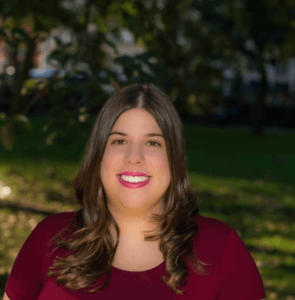What’s a should statement?
Should statements are thoughts that define what you think you SHOULD do. It’s a set of expectations that might not take your particular circumstances into consideration. Should statements give you two options: you pass or you fail–when in reality, life is much more complex than that! And when we don’t meet the expectations that these “should statements” set up for us, we feel guilty, we feel shame, and we feel like we aren’t living up to our potential.
While they might seem like motivators, should statements are actually a prime example of distorted thinking. There’s no list of goals that every person SHOULD accomplish. Your priorities in your life don’t need to come from outside pressure to achieve–finding your priorities and tuning into your own goals and desires is a much better way to motivate yourself to achieve!
Ask yourself:
- What should statements do I have in my life?
- How are they affecting me?
- How can I rethink them to give myself more flexibility & take into account my own particular circumstances?
- Why do I view life through should statements in the first place? What do they provide? Is it motivation? Is it structure?
While those might be what we think should statements provide, what they actually provide us is a lot of shame & guilt when we can’t meet the goals set up by them. Instead of using should statements as our motivation or structure (or whatever it is they provide for you) focus on your WANTS. What do you WANT to accomplish? How will it add value to your life?
Should statements, according to Courtney Ackerman, are “statements that you make to yourself about what you “should” do, what you “ought” to do, or what you “must” do. They can also be applied to others, imposing a set of expectations that will likely not be met.”
Should statements don’t necessarily seem like distorted thinking patterns when we form them. It’s good to have goals! So when we make those goals, it’s often a reflex to articulate them through should statements.
However, this becomes a problem when it starts to normalize looking at our behavior through the binary of “should” and “should not.”
For example: little things we don’t even think about are already framed through “should” and “should not.” Simple things like waking up early. Lots of us feel like we SHOULD wake up early to be productive throughout the day. So when we sleep in, we’ve already failed for the day.
Instead of viewing it as “I should wake up early” you might want to think “I want to make the most of the day that I have.” Even if you sleep in, you can still be productive! You can still make the most of your day, and you haven’t put yourself in the position of having failed right from the start.
How can you reframe your should statements?
- Don’t beat yourself up if you find yourself thinking them–habits are hard to break! Instead, take note of them. Don’t let them go unacknowledged.
- Write down the should statement. Ex: “I should be more organized.”
- Look at what the should statement is telling you about yourself. With the example above, this should statement is telling you that you’re looking for a little more control. You don’t want to feel frazzled or disoriented!
- Instead of thinking only in terms of the should statement, think in terms of the emotions you’re trying to control *with* that statement. Why are you stressed when things aren’t in your control?
- Ask yourself: Is the pressure you’re putting on yourself through the should statement fair? If you aren’t more organized, what will happen? Will the problem really be gone if you get organized?
- Go back to the original should statement. “I should be more organized.” Turn it into a more balanced statement. Something like: “When I have the opportunity, I want to find one small organization project to tackle.” This way, you’re giving yourself the benefit of circumstance. You don’t always have time to do everything you “should” do! Life is busy and complicated, so allowing yourself a little breathing room when making these goals will help cut back on self-imposed guilt and shame, and allow you to look at your life with a little more positivity.
Learning to limit should statements is all about learning to recognize where the internal pressure crafting the should statements is coming from.
Even if you can’t fully get there, don’t get down on yourself! Recognizing should statements is a huge step in itself. Take time to appreciate how far you’ve come. Then set a new goal to start limiting & reframing your should statements.
“Over time, we start viewing these shoulds as absolutes, as rules we must follow. Maybe even at any cost.” -Margarita Tartakovsky, MS

Alyssa Mairanz, LMHC, DBTC
Alyssa Mairanz provides counseling and therapy services for life transitions, relationship issues, self esteem, depression, anxiety, and DBT and Psychodynamic therapy in a NYC group practice in the Flatiron District near Madison Square Park. She also serves the Village, Chelsea, Union Square, the Financial District and the surrounding areas.
Empower Your Mind Therapy’s mission is to helps our clients build the life they want and find more happiness and satisfaction.



